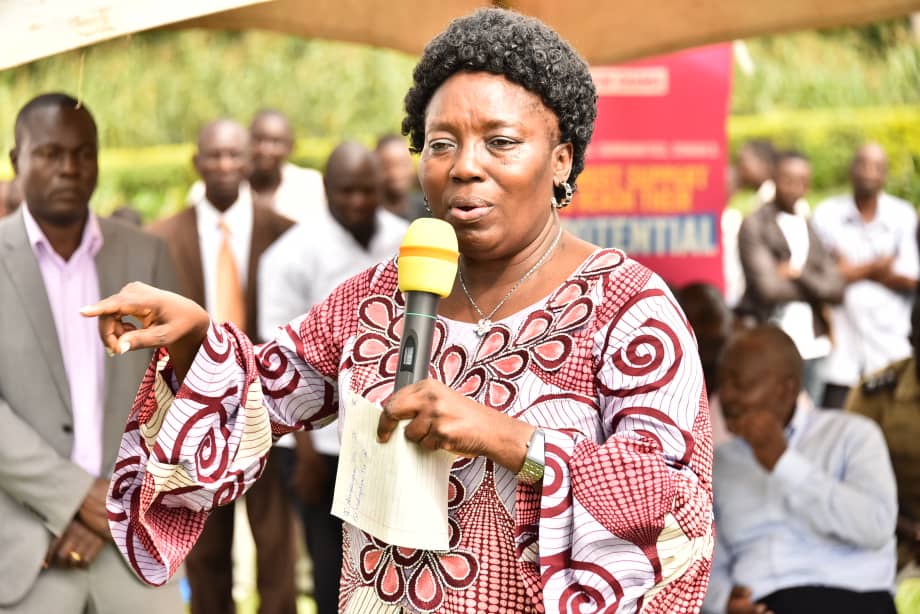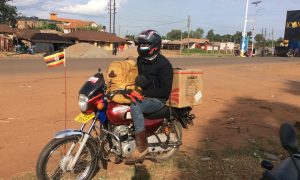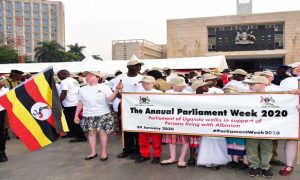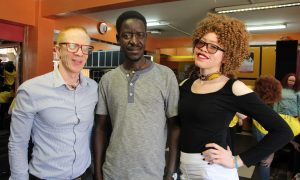
A report has been presented to Parliament on the validation of the Situation Analysis of Persons with Albinism in Uganda. The Report seeks to increase awareness and protection of their rights.
The report, which was delivered by Hon. Aliro Omara, a consultant for Office of the United Nations High Commission for Human Rights was backed by the Uganda Albinism Society. It states that there are associated concerns, myths, health conditions and superstitions as well as stereotypes centred on albinism.
“Many persons with albinism are discriminated culturally, socially and even by the government; parents of children with albinism are not aware of the risks their children face,” Omara said.
The report recommended the need to create and raise awareness about albinism and the issues surrounding it. “There should be campaigns and albinism should be introduced into the curriculum; teachers and medical workers need to be sensitive to people with albinism,” he added.
The report also recommends that the Uganda Bureau of Statistics should conduct a detailed survey of people with albinism and that there should be legislation to protect them.
“Impunity or any stigmatization of albinism should be stopped by all means. The only way to achieve this is by putting in place a law to protect people with albinism,” Omara noted.
The Speaker, Rebecca Kadaga, who officiated at the report launch, supported the recommendations on awareness, census of those with albinism and legislation.
“I think the Teacher Training Colleges and health training schools need to train future teachers and health workers on how to receive these children with open minds because they are human beings too,” she said.
Kadaga also noted that in the future the census should capture people with disabilities separately. She further added that the process of a bill for Persons with Disabilities (PWDs) is underway but said there are bureaucracies in the government.
“The Committees of Legal and Parliamentary Affairs, Equal Opportunities and Human Rights need to bring up the Motion to debate this issue on the Floor of Parliament as the Bill is processed,” she added.
Hon. William Nokrach (PWD, North) said that the report points to how people with albinism are extremely discriminated,“so sensitization is needed”.
“All district counties should do an extensive collection of data for people with disabilities so that the government can take necessary steps to plan for them,” he added.
Hon. Jacob Oboth (Indep, West Budama South) said,“The issue of PWDs should not be left for just surveys but for purposes of planning, budgeting and legislation.” He said that MPs need to legislate to protect a particular group of people who are threatened especially the people with albinism.
Hon. Veronica Bichetero (NRM, Kaberamaido County) requested that the report is shared with the Ministry of Gender, Labour and Social Development and Internal Affairs for their action. She also requested for action to be taken against anyone who marginalises a person with albinism.
“Any act committed against these people should be punished as an act against human rights because they are humans,” she said.
Hon. James Baba (NRM, Koboko County) said that there is need to address the issue of social protection for persons with albinism.
“The first thing persons with albinism need is protection against these criminal act committed on them; secondly there should be special affirmative action to get them education,” Baba added.
Clare Kyobe, a person with albinism also thanked the Speaker for her support toward people with albinism because they go through a lot.
“We go through a lot from birth; we are tortured, stigmatized and discriminated against so we agree entirely with the recommendations of the report and we seek the support of the government,” she said.
Joyce Katende, Commissioner Legal Services and Investigation, Equal Opportunities Commission reiterated the support of the Commission towards the people with albinism
“We are here to provide assistance to such kind of discrimination; if anyone is being marginalised or discriminated against they should always come and we shall endeavour to follow up,” she said.




























